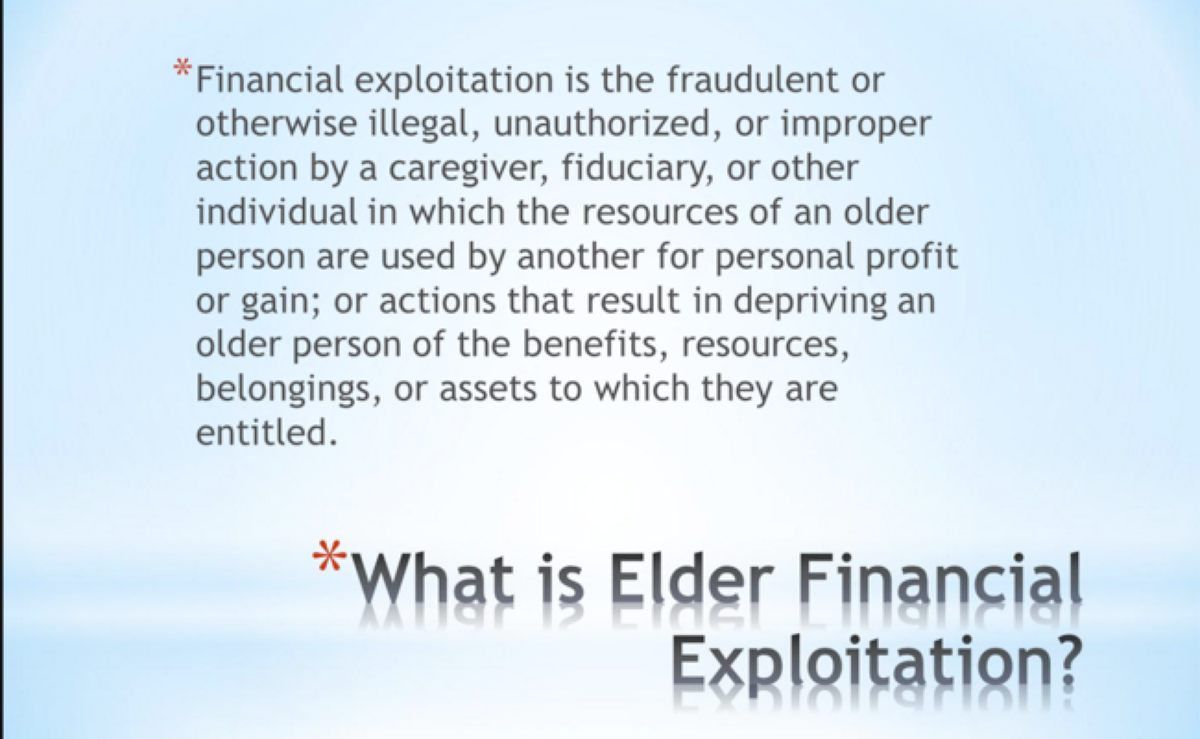Protecting Against Elder Financial Abuse

As baby boomers are retiring and life expectancy grows, the number of elderly Americans is increasing. According to the American Bankers Association, 70 percent of the nation’s wealth is controlled by people over the age of 50. Unfortunately, with this changing demographic also comes an increase in financial fraud against the elderly.
How do you go about protecting seniors from financial abuse? Marla Snyder, an expert on the issue, recently hosted a free webinar for NECB to spread awareness of this growing area of financial fraud. Snyder served on Gov. Patrick’s Commission for Preventing Elder Abuse, works as Senior Vice President of Compliance and Operations at The Savings Bank and is a part-time instructor for New England College of Business’ Master of Science in Business Ethics and Compliance program.
What is Elder Financial Fraud?
According to Snyder, elder financial abuse can take many forms. For seniors who may be suffering from dementia or have otherwise limited abilities, it may take the form of exploitation by someone with whom they are in a fiduciary relationship. For example, Snyder says one way that many older adults prepare for diminishing capacity is by appointing a power of attorney, who has legal authority to make financial decisions.
“What’ll happen is that they can make decisions even if you aren’t involved,” says Snyder. “We’ve seen cases where the power of attorney has come into the bank and has added themselves to an individual’s account.”
Though Snyder stresses that this act alone is not problematic, it has the potential to become an issue if the power of attorney has motives that are less than pure.
In addition to exploitation by a fiduciary, theft of money or property, investment fraud and scams also fall under the umbrella of senior financial abuse.

Who are the Elder Financial Abuse Perpetrators?
Fraudsters can take many forms, including home repair contractors, internet scammers or even financial advisors. Elderly financial abuse by family members is unfortunately very common, and often goes unreported.
“Even the most trustworthy family members, when confronted with financial difficulties of their own…it’s very tempting to exercise that power of attorney and write a check out for themselves,” says Snyder.
Sometimes, the offender is somebody that the senior does not even know, as is often the case with internet scams or identity theft.
How Can We Protect Seniors from Financial Abuse?
To proactively combat elder financial abuse, Snyder recommends planning ahead. Preparing for potential health problems in the future and ensuring that your finances are in order helps relieve some of the stress of decision-making from your caretakers.
“You want to make sure if you’re planning ahead that you set aside reserves, and you have money held back to avoid financial disaster and setbacks,” Snyder says.
To avoid becoming a victim of identity theft, Snyder suggests keeping a close watch on your personal information, including your banking and insurance information. At the first sign of trouble, Snyder encourages people to take action and file a report.
Luckily, there are many resources for seniors who suspect elder financial abuse, including the Eldercare Locator, the National Center on Elder Abuse and the Financial Fraud Enforcement Task Force.
NECB offers many free and informative webinars throughout the year. To learn more about upcoming webinars, visit NECB on Facebook or follow NECB on Twitter.